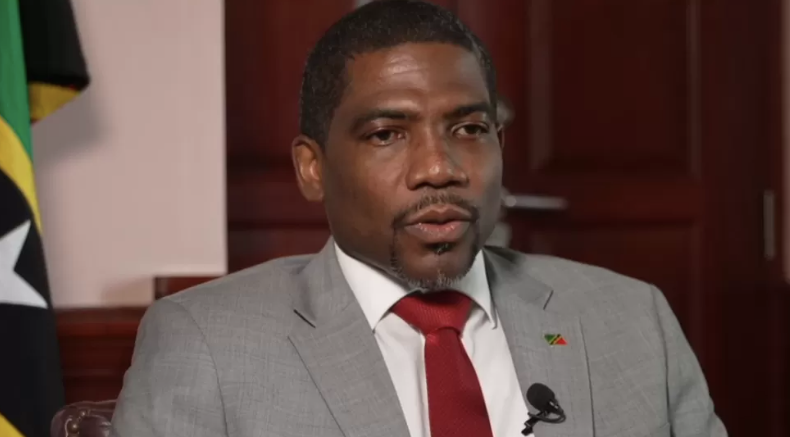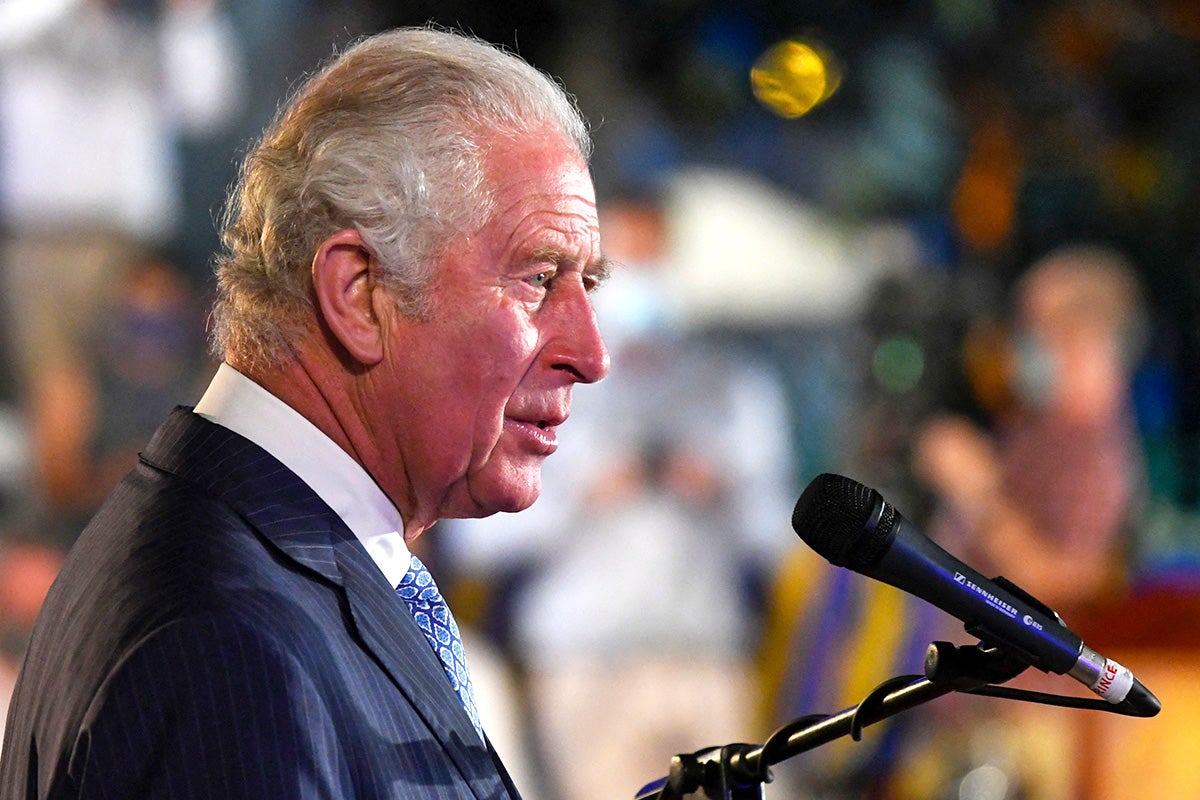Saint Kitts and Nevis PM says nation ‘not totally free’ under King Charles
King Charles III is the head of state in Saint Kitts and Nevis

Saint Kitts and Nevis is “not totally free” under King Charles III, the country’s prime minister has said.
The King is the head of the two-island sovereign state – with Saint Kitts the first Caribbean island that English colonists permanently settled.
Saint Kitts and Nevis prime minister Dr Terrance Drew also said he would welcome an apology from the monarchy for its historic links to the slave trade.
Buckingham Palace told the BBC that the King has pledged to deepen his understanding of the impact of slavery, something he takes “profoundly seriously”.
“That learning process has continued with vigour and determination since His Majesty’s accession,” Buckingham Palace said.
The palace noted that the King “has long acknowledged the discussion about constitutional arrangements”.
In a speech to Commonwealth leaders last year, the King said: “Each member’s constitutional arrangement, as republic or monarchy, is purely a matter for each member country to decide.”
Last month, Buckingham Palace said it was supporting and cooperating with an independent study into the relationship between the British monarchy and the transatlantic slave trade.
Speaking about the study, Dr Drew said: “I think that acknowledging that ... something wrong was done, acknowledging it and apologising for it, is a step in the right direction.”
He added: “We are not just speaking about a monetary contribution, because we are not acting like victims.
“It is about real changes even within the systems that are still affecting people of African descent in negative ways.”

During the then Prince of Wales’s visit to Barbados in 2021, Buckingham Palace said reparations are a political matter for individual governments to address.
There is widespread support for compensation for the descendants of enslaved Africans throughout the Carribbean. A 10-point plan was proposed in 2014 by the Caricom Reparations Commission, made up of 15 member states including Barbados, Jamaica, the Bahamas and Saint Kitts and Nevis.
The plan includes cash payments, development funding, and formal apologies by states with historical links to the slave trade.
The King and Prince William have previously expressed personal sadness about slavery.
During a visit to Rwanda last year, the then Prince of Wales said he could not describe “the depths of his personal sorrow” at the suffering caused by the slave trade.
In April, prime minister Rishi Sunak refused to formally apologise for the UK’s historic role in the slave trade, saying: “Trying to unpick our history is not the right way forward.”
Last week, representatives from 12 Commonwealth countries joined forces to call on the King to acknowledge and apologise for the impact and ongoing legacy of British “genocide and colonisation”.
The statement called on the King to act on the royal family’s recent expressions of sorrow by beginning a process for reparations and returning stolen artefacts and bodily remains.



Join our commenting forum
Join thought-provoking conversations, follow other Independent readers and see their replies
Comments